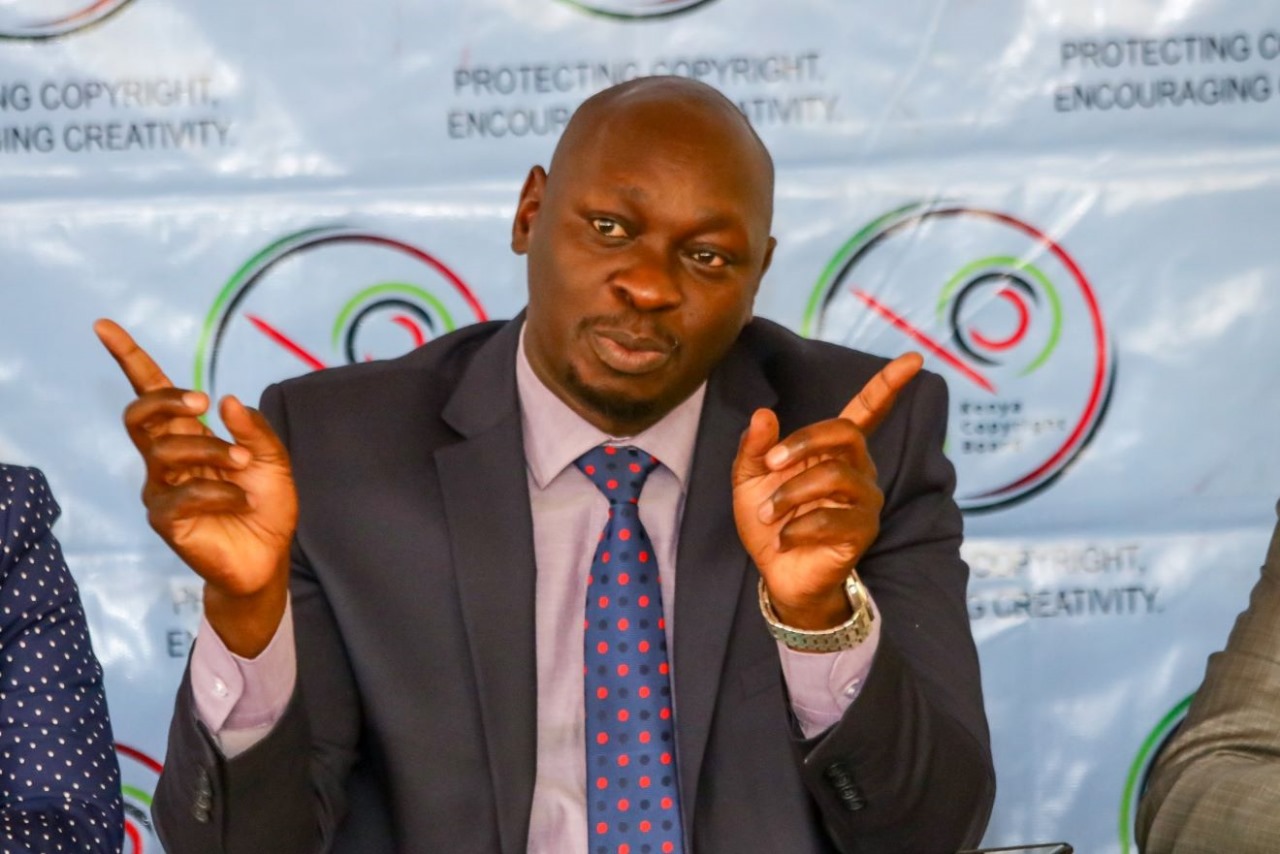

The Music Copyright Society of Kenya (MCSK) has been dealt a blow after the Kenya Copyright Board (Kecobo) declined to issue it with an operating license.
Kecobo board, in a letter signed by its chairperson Joshua Kutuny, said it resolved to withhold a six-month provisional license that was to be issued to the organisation over alleged internal disputes.
It has instead licensed Performing and Audio-Visual Right Society of Kenya (PAVRISK) for a third time and the Kenya Association of Music Producers Copyright and Related Rights Limited (KAMP) to collect royalties on behalf of musicians and audio-visual rights holders through the issuance of Unified Copyright Licenses.
“Pursuant to Section 46 (2) of the Copyright Act 2001, the board has licensed two CMOS, namely, Performing and Audio-Visual Right Society of Kenya (PAVRISK) for a third time and the Kenya Association of Music Producers Copyright and Related Rights Limited (KAMP). Take note that the MCSK license has been withheld due to their internal disputes,” Kutuny said.
The letter from the board is dated June 16.
This means, MCSK has been technically barred from representing musicians.

Kutuny said for uniformity and ease of operations, PAVRISK and KAMP are required to collect royalties using an integrated Information and Communication Technology (ICT) system as per the consent signed by the two licensed CMOs accessible through USSD *553#.
The board further clarified that valid invoices and Unified Copyright Licenses to be issued by the CMOs to users of music allowing them to play copyrighted music in the premises should specifically read PAVRISK or KAMP.
The regulator stated that all invoices and unified copyright licenses issued to users should be accompanied by a corresponding KRA e-tims certificate once issued by either CMO in order to prevent cases of double licensing and payment.
Pursuant to Section 46 (12) of the Copyright Act and regulations 2001, it is illegal for any person, group of persons or organisations to carry out the royalty collections without a valid license from the Kenya Copyright Board.
The notice comes at a time when cases of unauthorised persons issuing illegal invoices and unified copyright licenses to unsuspecting users are on the rise across the country.
“It is therefore illegal and criminal for anyone to issue invoices and unified copyright licenses to users of music under the purported and illegal joint system bearing the names of MCSK, MCSK-PAVRISK-KAMP, PAVRISK-MCSK, and KAMP-MCSK or under KAMP-PRISK-MCSK”, the board warned.
The board also appealed to users of music and members of the public to be alert and report to the regulator or security agencies such persons or unauthorised CMO conning unsuspecting users with the prohibited invoices.
The consent, which was entered by KAMP Copyright and Related Rights Ltd and PAVRISK dated June 16, 2025, mandates both CMOs to collect royalties and issue licenses to users of music in specified sectors.
In the arrangement, KAMP will collect royalties and issue licenses to operators of Public Service Vehicles (PSVs) consisting of matatus, commercial vehicles, and taxis, as well as the new media, while PAVRISK will collect in the field of general licensing and broadcasters.
Pavrisk will invoice, license, and enforce use of copyrighted works in Arcades, shops, bars, restaurants, hotels, malls, banks, road shows, promotional activities, DJs, eateries, schools, hospitals, clinics, radio and TV stations.
The consent was signed on behalf of PAVRISK by its chairman Edwardo Waigwa and CEO Joseph Njagih, while Angela Ndambuki and CEO Maurice Okoth signed on behalf of KAMP, respectively, in the presence of KECOBO acting Executive Director George Nyakweba











